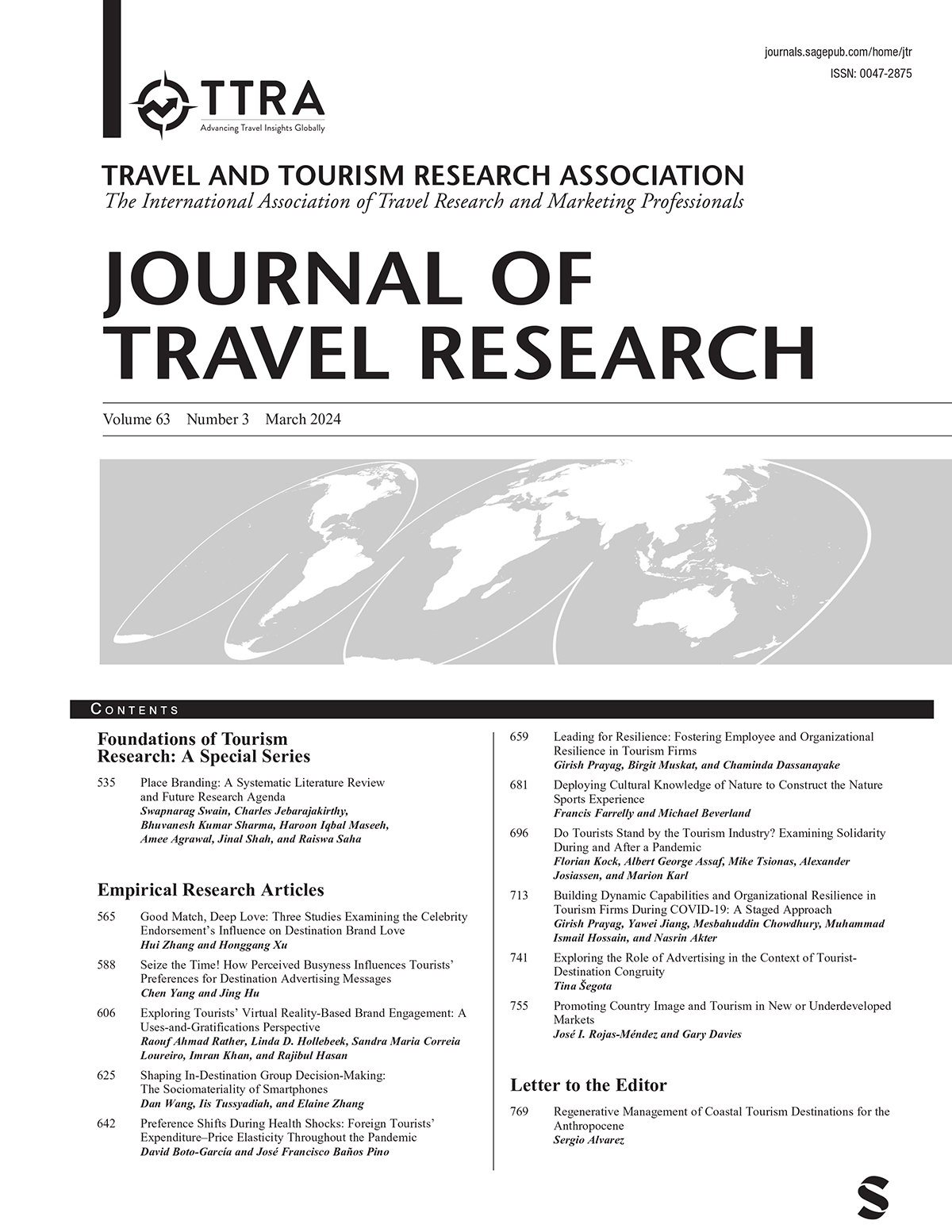“小上海”的慢下来:怀旧引发的心理所有权与遗产保护互动框架
IF 7
2区 管理学
Q1 HOSPITALITY, LEISURE, SPORT & TOURISM
引用次数: 2
摘要
虽然怀旧的遗产旅行现象越来越受欢迎,但很少有人研究对遗产地的怀旧如何成为遗产保护的一种手段。本研究采用了多方法定性设计,研究1从在线旅行日记中记录的旅行经历中推断出怀旧遗产的旅行动机。研究2采用心理所有权理论,利用来自半结构化访谈的数据,构建了一个怀旧引发的心理所有权与遗产保护之间的互惠框架。研究结果首次揭示了一系列怀旧遗产旅行动机,从怀旧的回忆和赞美到怀旧引发的嬉戏和治愈。此外,研究结果指出了心理所有权的互惠模式——通过三条途径培养的遗产保护:行使控制权、亲密认识和自我投资。总之,这项研究阐明了自我-地点关系的过去、现在和未来的综合。它提出了由怀旧驱动的互惠概念,以增加对遗产保护的理解。本文章由计算机程序翻译,如有差异,请以英文原文为准。
Slowing Down in “Little Shanghai”: A Nostalgia-induced Framework of Reciprocity between Psychological Ownership and Heritage Preservation
While the phenomenon of nostalgic heritage travel has gained traction, scarce inquiries have researched how nostalgia for heritage sites can render a means for heritage preservation. This inquiry utilized a multi-method qualitative design, with Study 1 inferring nostalgic heritage travel motivations from travel experiences documented in online travel diaries. Study 2 adopted the psychological ownership theory with data originating from semi-structured interviews to construct a nostalgia-induced framework of reciprocity between psychological ownership and heritage preservation. Findings first unveil an array of nostalgic heritage travel motives ranging from nostalgic reminiscing and glorification to nostalgia-induced playfulness and healing. Further, findings point to a reciprocal pattern of psychological ownership–heritage preservation fostered by three routes: exercise of control, intimate knowing, and investment of the self. Together, this research illuminates a past–present–future synthesis of self–place relations. It presents the concept of reciprocity driven by nostalgia to increase understanding of heritage preservation.
求助全文
通过发布文献求助,成功后即可免费获取论文全文。
去求助
来源期刊

Journal of Travel Research
HOSPITALITY, LEISURE, SPORT & TOURISM-
CiteScore
18.90
自引率
9.00%
发文量
66
期刊介绍:
The Journal of Travel Research (JTR) stands as the preeminent, peer-reviewed research journal dedicated to exploring the intricacies of the travel and tourism industry, encompassing development, management, marketing, economics, and behavior. Offering a wealth of up-to-date, meticulously curated research, JTR serves as an invaluable resource for researchers, educators, and industry professionals alike, shedding light on behavioral trends and management theories within one of the most influential and dynamic sectors. Established in 1961, JTR holds the distinction of being the longest-standing among the world’s top-ranked scholarly journals singularly focused on travel and tourism, underscoring the global significance of this multifaceted industry, both economically and socially.
 求助内容:
求助内容: 应助结果提醒方式:
应助结果提醒方式:


